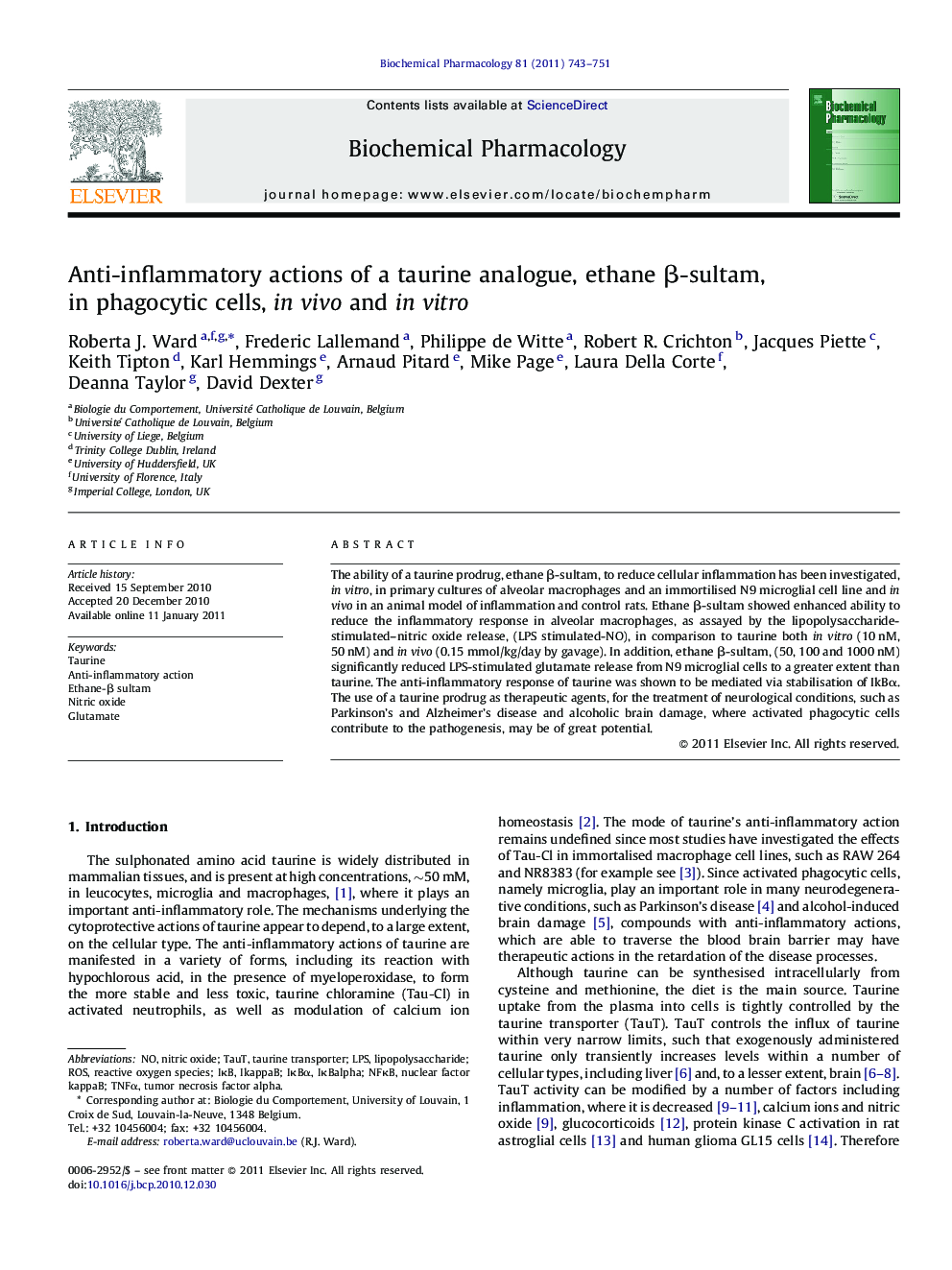| Article ID | Journal | Published Year | Pages | File Type |
|---|---|---|---|---|
| 5823974 | Biochemical Pharmacology | 2011 | 9 Pages |
Abstract
The ability of a taurine prodrug, ethane β-sultam, to reduce cellular inflammation has been investigated, in vitro, in primary cultures of alveolar macrophages and an immortilised N9 microglial cell line and in vivo in an animal model of inflammation and control rats. Ethane β-sultam showed enhanced ability to reduce the inflammatory response in alveolar macrophages, as assayed by the lipopolysaccharide-stimulated-nitric oxide release, (LPS stimulated-NO), in comparison to taurine both in vitro (10 nM, 50 nM) and in vivo (0.15 mmol/kg/day by gavage). In addition, ethane β-sultam, (50, 100 and 1000 nM) significantly reduced LPS-stimulated glutamate release from N9 microglial cells to a greater extent than taurine. The anti-inflammatory response of taurine was shown to be mediated via stabilisation of IkBα. The use of a taurine prodrug as therapeutic agents, for the treatment of neurological conditions, such as Parkinson's and Alzheimer's disease and alcoholic brain damage, where activated phagocytic cells contribute to the pathogenesis, may be of great potential.
Keywords
Related Topics
Health Sciences
Pharmacology, Toxicology and Pharmaceutical Science
Pharmacology
Authors
Roberta J. Ward, Frederic Lallemand, Philippe de Witte, Robert R. Crichton, Jacques Piette, Keith Tipton, Karl Hemmings, Arnaud Pitard, Mike Page, Laura Della Corte, Deanna Taylor, David Dexter,
